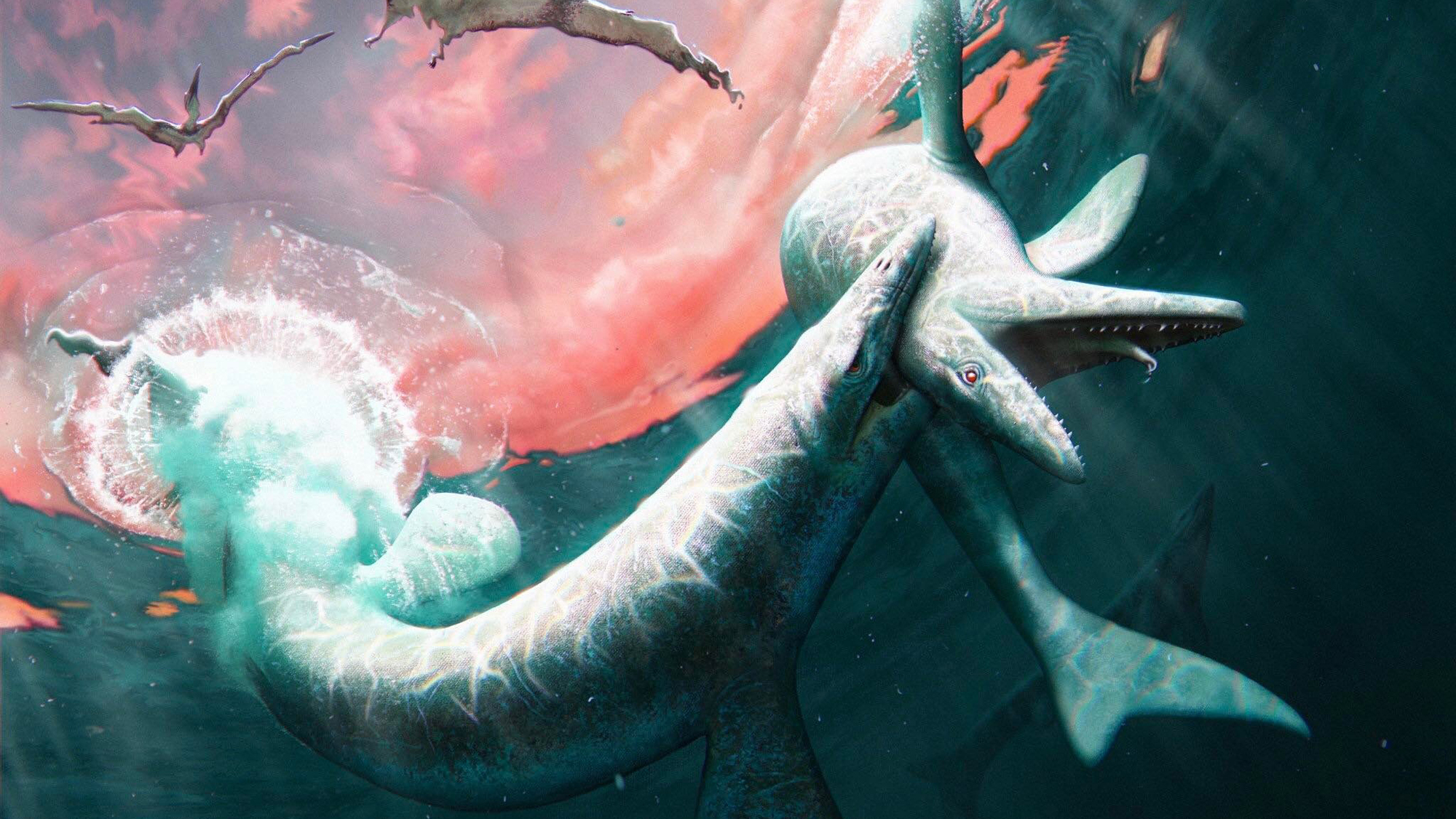

Paleontologists in North Dakota have discovered new species of mosasaur. These giant meat-eating aquatic lizards swam the Earth’s seas about 80 million years ago during the late Cretaceous period. This new species is named Jormungandr walhallaensis after a sea serpent in Norse mythology named Jörmungandr and Walhalla, North Dakota where its fossils were found. The findings are described in a study published October 30 in the Bulletin of the American Museum of Natural History.
[Related: Dinosaurs who stuck together, survived together.]
“If you put flippers on a Komodo dragon and made it really big, that’s what it would have looked like,” study co-author and Richard Gilder Graduate School PhD student Amelia Zietlow, said in a statement.
The first mosasaur specimens were discovered over 200 years ago and the word “mosasaur” even predates the word “dinosaur” by roughly 20 years. There are still several unanswered questions about these ancient sea lizards, including how many times they evolved to have flippers and when they became fully aquatic. Scientists believe that they evolved to have their signature flippers at least three times and possibly four or more. It is also still a mystery if mosasaurs are more closely related to present day monitor lizards or snakes or another living creature entirely. This new specimen fills in some knowledge gaps of how the different groups of mosasaurs are related to each other.
“As these animals evolved into these giant sea monsters, they were constantly making changes,” Zietlow said. “This work gets us one step closer to understanding how all these different forms are related to one another.”
Researchers in northeastern North Dakota first discovered the Jormungandr fossil in 2015. It included a nearly complete skull, jaws, and cervical spine, and a number of vertebrae. An extensive analysis revealed that the fossil is of a new species that has multiple features that are also seen in two other mosasaurs: Clidastes and Mosasaurus. Clidastes is a smaller animal of about six to 13 feet long that lived roughly 145 million years ago. Mosasaurus was much larger at almost 50 feet long and lived about 99.6 to 66 million years ago alongside the Tyrannosaurus rex.
[Related: This four-legged snake fossil was probably a skinny lizard.]
The new specimen is about 24 feet long and has flippers. It also has a shark-like tail similar to other early mosasaur species. It also likely would have had “angry eyebrows,” caused by a bony ridge on its skull. Its slightly stumpy tail would have also been shorter than the rest of its body.
Jormungandr was likely a precursor to the bigger Mosasaurus.
“This fossil is coming from a geologic time in the United States that we don’t really understand,” study co-author and paleontologist from the North Dakota Geological Survey Clint Boyd said in a statement. “The more we can fill in the geographic and temporal timeline, the better we can understand these creatures.”
In Norse mythology, Jörmungandr is an enormous sea serpent or worm who encircles the Earth. Jörmungandr is believed to be the middle child of the trickster god Loki and the giantess Angrboða. Thor the god of thunder also has an ongoing battle with Jörmungandr and it is believed that the two will fight to the death during Ragnarok, or the end of the world.
